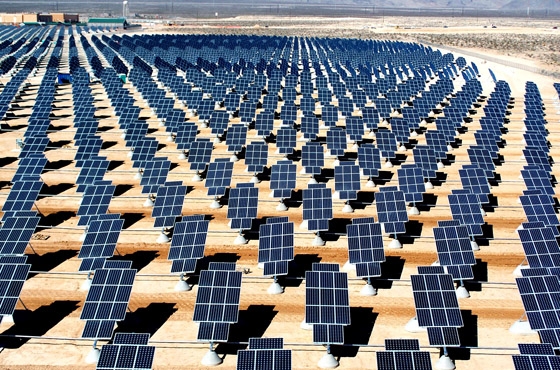Renewable energy market is rapidly expanding in the Arab region, with the countries announcing a diverse range of projects and policies to harness the region’s abundance of renewable energy. New investment in renewable totaled $1.9bn in 2012, a six-fold increase compared to 2004, Najib Saab, Secretary General, Arab Forum for Environment and Development (AFED) said.
Delivering the key note address on the second day of IHT Global Energy Forum, Najib noted Saudi Arabia has plans to meet 33 percent of its local energy needs from renewable by 2032. Abu Dhabi has emerged as the world’s biggest Concentrated Solar Power (CSP) plant with 100 megawatt capacity. Work has started on a CSP plant in Morocco with 160-megawatt capacity.
To meet the growing demand for electricity, a number of Arab countries have announced plans to add nuclear power to their energy mix, either motivated by achieving energy diversification and security in oil exporting countries as in the UAE, or as compensation for the lack of conventional fuels as in Jordan.
Citing the contrast prevailing in the Arab region in terms of energy consumption, Najib noted despite reports of high rate of per capita carbon emissions in the Arab world, an estimated 35 m Arab people are left without access to modern energy services, mainly electricity.
Over the past three decades, the major Arab oil exporters have witnessed an unprecedented economic and social transformation. Oil proceeds have been used to modernize infrastructure, create employment, and improve human development indicators. However, oil revenues have not been able to spur the kind of economic diversification many Arab leaders sought and continue to seek. Most of those deprived access to modern energy services are exceptionally reliant on the highly volatile oil revenues, Najib said.
Climate change concerns would potentially lead to major policy shifts in global energy markets towards more efficient low carbon clean energy sources and technologies. Arab exporters cannot continue to be observers or try to block change as they did in Climate Change negotiations until recently.
“A major shift has started, mainly witnessed in the changing attitudes of climate negotiators from major hydrocarbon exporters, mainly Saudi Arabia, the UAE and Qatar. These countries now realize that a plan for a soft-landing has become unavoidable and a necessity. Such a plan should include diversification of the national economies and wide-ranging regional cooperation, including in research and development”. Like in the case of energy efficiency, uncontrolled subsidies to conventional fuels are hindering wide-spread deployment of renewable energy and discouraging private sector investments.
The Peninsula
11 October













































































